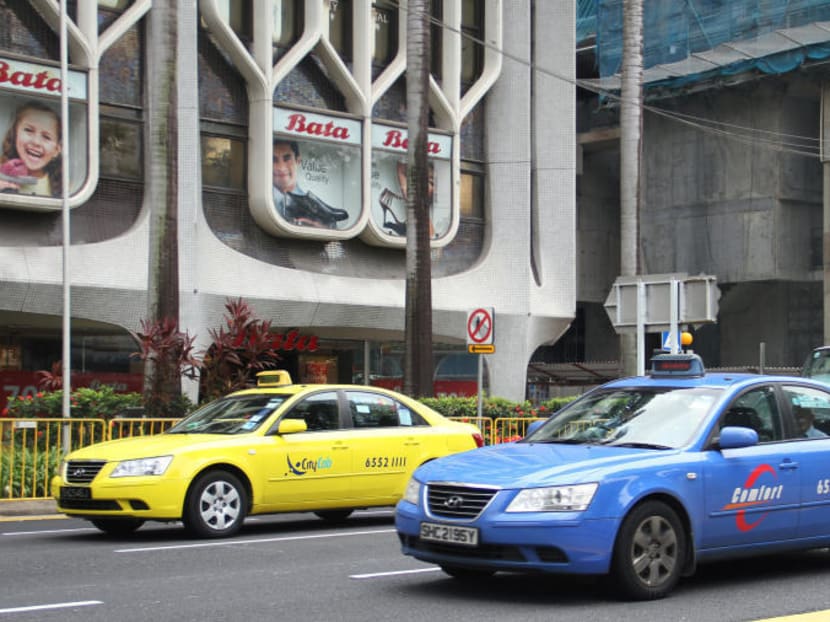Minimum mileage and peak shoulder period rules for taxis to be scrapped next month
SINGAPORE — From January, taxi drivers will no longer be required to clock a minimum daily mileage and ply the roads during peak shoulder hours, following a review of the taxi availability framework.
SINGAPORE — From January, taxi drivers will no longer be required to clock a minimum daily mileage and ply the roads during peak shoulder hours, following the review of the taxi availability framework.
Since January 2013, a certain proportion of an operator's taxi fleet has to clock at least 250 km each day, and be on the roads during both peak and peak shoulder periods to improve the availability of taxis for commuters. However, taxi drivers have spoken out against these rules, especially in recent years after the entry of private car hire service providers such as Uber and Grab which are not subjected to the framework.
In September, Senior Minister of State for Transport Ng Chee Meng told Parliament that the taxi availability standards will be reviewed at the end of the year to “further level the playing field”.
On Saturday (Dec 17), the Land Transport Authority (LTA) announced that some of the requirements under the framework will be scrapped. The simplified framework will only stipulate that 85 per cent of an operator's fleet has to ply the roads during peak periods (7am to 11am, and 5pm to 11pm). The requirement for peak shoulder hours (6am to 7am, and 11pm to midnight) will be removed, along with the minimum daily mileage rule.
The authority noted that third-party taxi booking applications, as well as operators' improved in-house booking apps, have enabled better matching between supply and demand.
Citing the private hire car services, LTA also pointed out that there are more options available for commuters. "As such, and in order to give taxi companies and taxi drivers more flexibility to adapt to the evolving market, LTA will simplify the taxi availability framework," it added.
Speaking to reporters on the sidelines of a charity futsal match organised by the Ministry of Transport, Mr Ng said that following the revisions, he hopes that taxi drivers will be able to better utilise their vehicles and maximise their earnings. "More importantly, perhaps the taxi companies, without (some of the requirements under the) regulatory framework, can pass on some of their reduced costs to the taxi drivers to ease their burden," said Mr Ng, who is also the Minister for Education (Schools). He also hoped that under the simplified framework, taxi drivers will be able to cope better with the disruption caused by the private hire car industry.
The National Taxi Association (NTA), which has been calling for the removal of the requirements, said it was glad that the Government has taken onboard cabbies' feedback. "We believe that these revisions will help our drivers minimise empty cruising going forward," said NTA.
Meanwhile, LTA said that since the introduction of the taxi availability standards, the percentage of taxis on the roads during peak hours has gone up from 82 per cent in 2012 to 93 per cent in the first nine months of this year. This translates to about 2,000 more taxis being available to commuters during these hours. The percentage of taxis plying at least 250km daily has also jumped from 75 per cent to 81 per cent over the same period.







